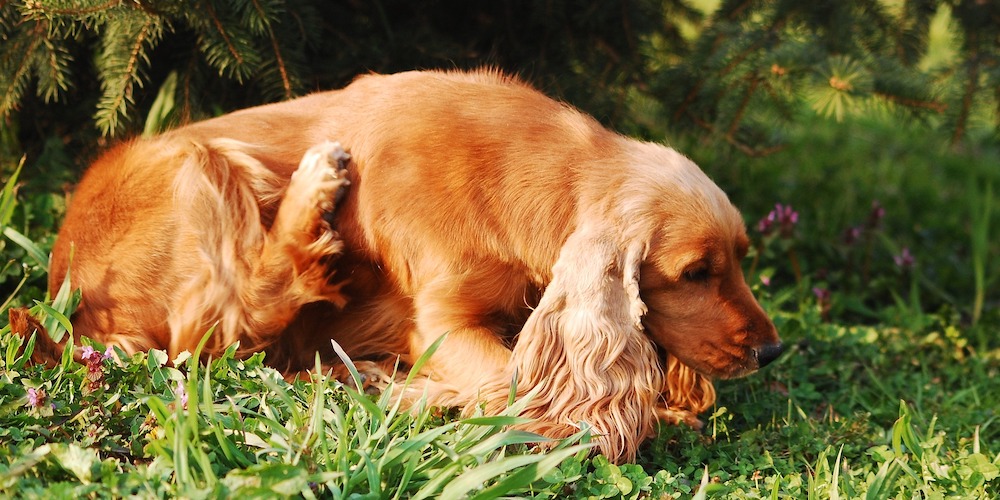Grass allergies in dogs are very common, however, some breeds are more prone to this allergy than others. Bulldogs, German Shepherds, Miniature Schnauzers, Pugs and Retrievers are a few breeds that are often diagnosed with grass allergies.
If your dog is licking or scratching more than usual, it may be the first sign of an allergic reaction. This allergy can have a profound effect a dog’s quality of life, so if these symptoms appear, it is important to visit your vet for an assessment.

Signs and symptoms of a grass allergy may vary from dog to dog, however most experience one or more of the following;
Grass pollen is airborne, so your dog doesn’t have to be rolling around on the grass to be affected.
Grass allergies in dogs are caused by pollen, so it makes sense that they are more profound in spring and summer. Dogs can be exposed to pollen through absorption through their skin, breathed into their lungs or direct contact within the home through shoes or clothing.

To diagnose a grass allergy, your veterinarian will discuss your dog’s history and examine their symptoms. This is followed by a skin and hair examination looking for hair loss, lesions on the skin such as pimples, rashes, redness or skin irritation. A blood test may be used to screen for allergens.
Treatment for a grass allergy is designed to manage your dog’s symptoms and to make their day to day lives more comfortable. Treatment type is determined by the severity of their symptoms and could consist of the following;
Karingal Vet Hospital – Does Your Dog Have a Grass Allergy
If you suspect your dog is suffering from a grass allergy, contact your vet for more information, a diagnosis and a treatment plan to ensure your dog is living a comfortable life. For an assessment or health check, contact Karingal Vet Hospital on (03) 9789 3444 or book online today.